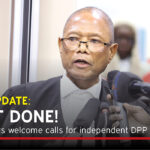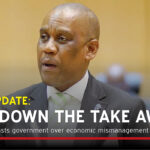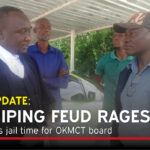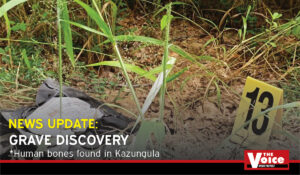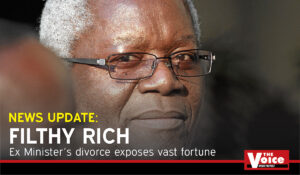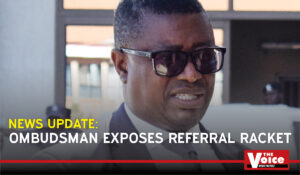Having been in self-imposed exile for the better part of his successor, President Mokgweetsi Masisi’s term, Ian Khama made a dramatic return towards elections, announcing his retirement from politics to focus on his role as Paramount Chief of the Bangwato tribe.
True to his word, he took his seat in the Ntlo ya Dikgosi following the formation of the new government. However, Khama’s actions since his return have stirred up controversy, leaving Botswana’s government in awkward positions on the international stage.
His remarks at the Ukraine Embassy, where he labelled Russian President, Vladimir Putin, a “war criminal” and accused Russian forces of deliberately targeting civilians, have drawn attention. Additionally, his undisclosed meetings with Mozambique’s opposition leader, Venacio Mondlane, led to an unexpected turn of events—his arrest and brief detention in Angola, raising further questions about his political influence and his knack for stirring the pot.
The Voice staffer, DANIEL CHIDA, engages Political Analyst, Olopeng Rabasimane, as he weighs in on the matter.
Rabasimane believes the fundamental challenge is Khama’s multiple roles—Paramount Chief of Bangwato, Founder and Patron of BPF, Founder and Patron of SKI foundation, and former President, among others—which often overlap, making it hard to tell which hat he’s wearing at any given time. “If we knew the hat, it would at least assist in giving us context to some of his actions and public utterances,” Rabasimane said.
As a former president, like all other former presidents, Khama is considered a de facto diplomat for Botswana, expected to align his foreign activities and engagements with the country’s foreign policy. His international engagements, Rabasimane opines, ought to mature Botswana’s bilateral and multilateral relations, and not to hurt them.
Ramasimane believes Khama’s recent utterances aimed at Russia’s President, Vladimir Putin, are unfortunate and regrettable as they clash with Botswana’s non-alignment stance, potentially causing unnecessary diplomatic headaches. “His rogue diplomacy is putting President Boko between a rock and a hard place,” Rabasimane added.
However, Rabasimane reckons, it is fortunate that both Russia and America consider Khama’s views inconsequential. “But it may not always be the case. Khama’s actions are clearly undermining Boko’s authority, legitimacy and hurting his bilateral engagements. As a new President leading a totally new administration, Boko and his team are still learning avenues and corners of international relations.”
While he admits there is nothing wrong with Khama engaging with Mozambique’s opposition leader, Mondlane, Rabasimane emphasizes this has to be open, transparent and coordinated by the Ministry of International Relations and their counterparts in Mozambique. “The opaque and queer manner in which Khama did it creates strategic anxiety on the part of Mozambique and leaves room for mistrust between our respective nations. Further, it puts Boko and his administration on the back foot, because they may have to explain things they are not privy to, more so that we have our soldiers serving in Mozambique under SAMIM and we have joint rail investment. The optics are not at all good,” he observes.
Rabasimane, however, believes President Boko’s hands are tied, and that he capitulated too much, to a point of almost handing Khama state power. This, he believes, is partly due to his decision to include the BPF in his government after the elections. “The political decisions he made in the formation of his government, are coming back to haunt him. It was not necessary for the party that had won a majority to bring in the BPF. It is probable that the reasons that motivated the inclusion of BPF are the very reasons that are giving Khama the ‘do-as-you-please’ attitude.”
To curb Khama’s apparent rogue actions, Rabasimane suggested downgrading his diplomatic passport to an official one, a move that could help mitigate strategic and reputational costs on the country. “It is like Boko is beholden to him. I think the two need to engage and Boko to demarcate the line, if he has the cards and guts,” Rabasimane opines.
Now with Khama’s antics seemingly causing headaches for the government, it remains to be seen if President Boko will draw a line in the sand, or if Khama will continue to operate as a loose cannon on the international stage.












